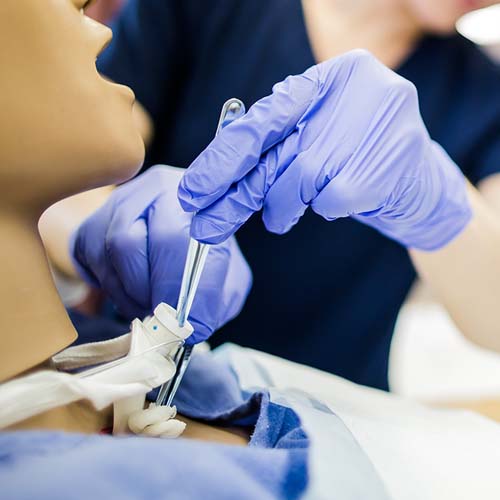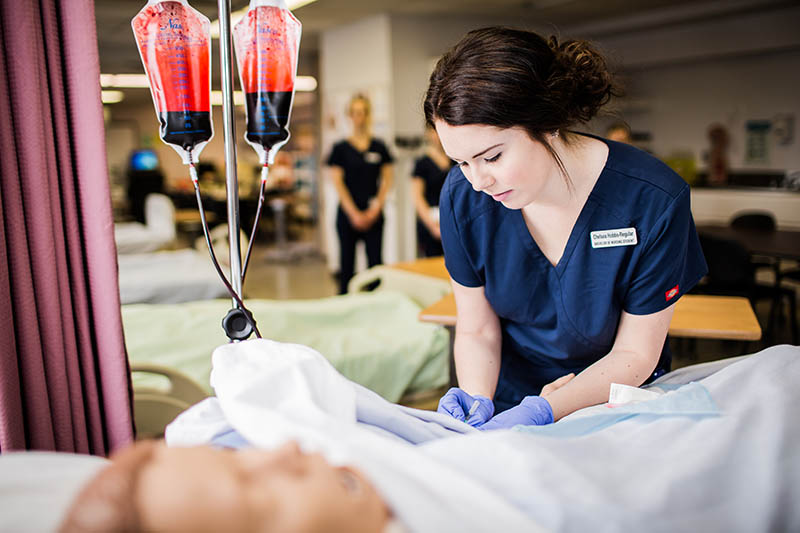Research Report: 2016-2018
▼ Choose a report:

Powered by Research & Graduate Studies

Powered by Arts and Social Science

Powered by Fine Arts

Powered by Science and the Environment


A major challenge in nursing practice and education is the lack of clinical placements available to students.
This is particularly noticeable in specialty nursing practice areas like pediatrics, where hospital stays are very short and patients have complex needs. A literature review conducted by principal investigator Daphne Kennedy and team members Peggy Colbourne, Erica Hurley and Dawn Pittman found that nurse educators need to foster student abilities to think like nurses and apply good clinical judgment in the care of highly acute clients with complex needs.
"By incorporating simulations into instructional design, nurse educators can promote the weaving of concepts and information into real-life situations," said Kennedy. "This provides a contextualized learning experience that is meaningful, leads to deeper learning, and enhances critical thinking and nursing practice, as noted by Adamson, 2015."
As part of the baccalaureate of nursing program at Western Regional School of Nursing (WRSON), students are required to complete 64 hours of pediatric clinical. Unfortunately, due to the changing dynamic of pediatric healthcare, learners often do not have essential learning opportunities.
Educators at WRSON previously developed a simulated clinical experience, "pediatric simulations" in the hopes of providing a consistent, essential learning opportunity to all graduates of the program, she said.
"Evaluations of past simulations have been positive and there is evidence to support inclusion of further simulations in this clinical course," said Kennedy. "Additionally, although nursing students at WRSON have been provided with one pediatric simulation, we would like to introduce additional simulations to enhance their learning."
The aim of the program evaluation was to better understand and enhance the learning experiences of the students in the pediatric clinical.
"If learning experiences are to be effective, they must be meaningful to the learners," said Kennedy, adding that the study would provide insight into learner experiences during the pediatric simulations.
The study concluded with the development of different learning models, employing the most effective, standardized techniques. The study was made possible through a partnership with Western Health and expert faculty.